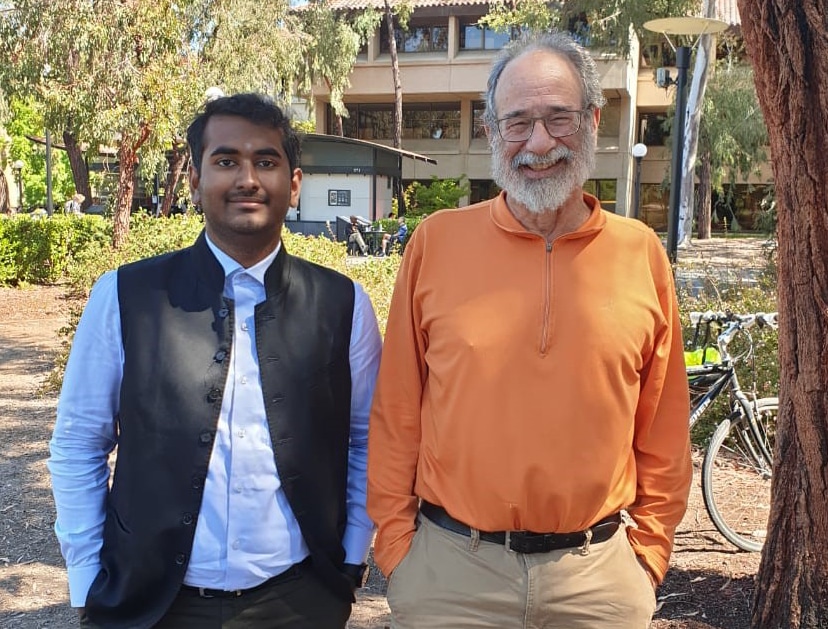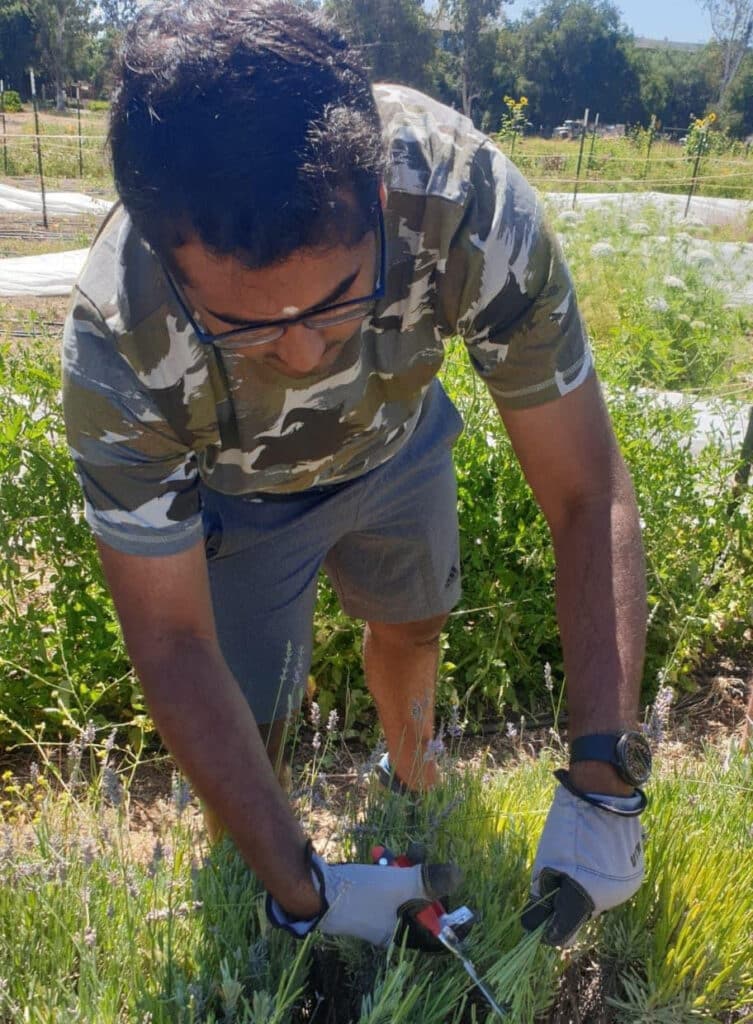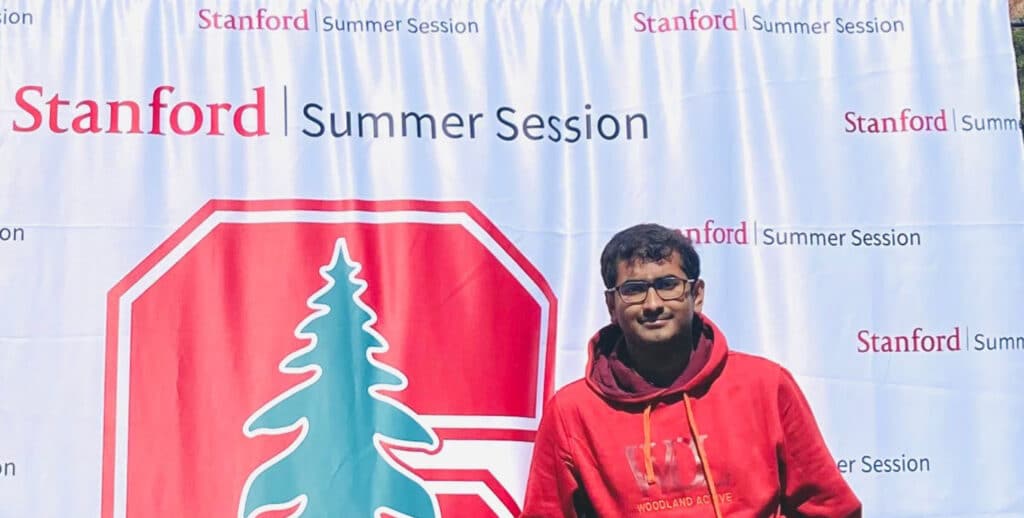Discovering literature in the heart of London at King’s College, experiencing learning from the heart of a start-up hub at UC Berkeley, pursuing environmental law alongside industry experts at Nottingham Trent University, or immersing oneself in Data and Policy at a Centre of excellence at Harris School of Public Policy, this could be you, next summer.
Every summer, undergraduate students across India step into their break, choosing internships and study programmes to pack their summer with experiences and learning. A short study abroad programme provides them with a diverse culture and knowledge-based experience while also reducing the pressure when it comes to funds, a best-of-both-worlds scenario.
In an attempt to curate a roadmap for students eager to explore study abroad opportunities, we spoke to Sai Balaji Suresh, a third-year student at SIAS, Krea University who has spent many summers undertaking programmes with prestigious universities across the globe, including the Harvard Project for Asian and International Relations (HPAIR), Stanford Summer Session, London School of Economics (LSE) and King’s College London and Wharton School of the University of Pennsylvania during high school.
Sai takes us through his journey and together, we decode the opportunities present for students who wish to study abroad for the summers. But we don’t just stop there, we also deep dive into Sai’s experiences across the years from high school up until university, in curating an eclectic profile for himself through experiences that are organic but also count.
Summers that were
“I joined Krea in 2020 in the middle of COVID and had consciously let go of many fully funded opportunities from top international universities. But as I made that decision I also made a pact with my parents that every summer I would head to a university abroad for a short summer programme and I did. Last year it was LSE, then HPAIR and now Stanford.

Each of these experiences have been exciting and exhilarating, providing me the opportunity to make learning decisions that fit my future path, be a part of dynamic groups and meet inspiring people from all across the world.”
At Stanford, Sai participated in an eight weeks summer session where he undertook classes on Food, Sustainability and Culture, People Analytics: Data and Algorithms as Managerial Tools and High-Performance Computing and AI. At LSE, Sai did a three weeks virtual programme on strategic management but couldn’t head to the campus because of the pandemic. As a delegate at HPAIR, he and other students and young professionals from around the world met, engaged and learnt from government leaders, business executives, social sector pioneers, celebrities, and leading academics.
Right from the beginning
With a dream to venture out of India right after high school, Sai always ensured that his academic scores were highly competitive. And the summer programme abroad stint has been a part of Sai’s life right from Class 10. At King’s College London, Sai participated in Mission Discovery, a space-related programme for high schoolers where he interacted with top astronauts like Michael Foale and learnt about biological experiments in space from International Space Station Educational Trust (ISSET) Chairman Chris Barber. Yet another summer, his team was in the Top 3 at the Business Plan competition in the Global Young Leaders Academy (GYLA) at the Wharton School.
A simulation of the future
“My experience at Stanford was like a simulation; it has instilled confidence in both my parents and me that I can do well if I plan to study abroad. At Krea, I was able to gain the needed academic prudence for that, and these summer programmes have helped me with confidence. Programmes like these help shape our personalities in dynamic ways. Stanford, for instance, has a rigorous pedagogy and it can be tough but Krea has similar assessment schedules and patterns and also provides us space to indulge in clubs and committees and events; all these, put together have helped me hone critical skills that will help me cope in any of the top universities abroad if I am to choose them for the future.”
Roadmap to pursuing a short study abroad programme
When asked for a few suggestions for students who may be interested to do the same, Sai shares key takeaways from his experience.
R for Research
There are many options available across the world for short study abroad programmes and research is a good way to start.
“I looked at quite a few universities but chose Stanford. I explored the University of Pennsylvania and looked at courses at UC Berkeley but they weren’t apt for my goal. LSE, I had already pursued last summer and the Harvard programmes were shorter, so Stanford fit the bill right for what I wanted this summer. “
Find your fit
● Finding your course fit is important. Hence choosing these programmes after having some clarity on your majors and minors could help
● Choose courses that offer something distinct in your favorite disciplines
● If you have a dream university you couldn’t get into for your graduation, experience one summer
● If you have the bandwidth and budget go to these universities, explore the academic rigor, network and discover the culture
● Some of the programmes just demand academic transcripts but some may ask for an SOP
● If not a study abroad programme, try internships. There are opportunities abroad that aid selected candidates with documentation and visa to travel and work with them
● Explore opportunities within your own university for such programmes. At Krea we have some stellar partnerships that allow us to go to universities like Nottingham Trent, Sciences Po, Harris School of Public Policy, Babson and more
Explore funding options
For funding support, approach the schools. Many of them, including Harvard and LSE, provide full to partial funding for the short study programmes to deserving candidates. “Some of my colleagues were funded partially by their alma maters and by patrons,” adds Sai.
Why Krea?
“I could probably have made it to any university with my academic record but Krea was the only university I applied to in India. I was very sure of heading abroad for my undergraduate studies but then the pandemic happened. We were to be the second graduating batch of Krea; the campus was good, professors really cared for us, and to top it all, it was a new and unique university in the space of Liberal Arts Education. In hindsight, it was the right decision.”
“When you go abroad you have to cope with multiple things beyond academics, such as living alone and sometimes when you come from a certain educational background or board and it may or may not work. Everything is so ambiguous in the beginning, and then comes homesickness and the pandemic was all about being connected virtually. It’s a great idea to study in a university close to your roots which match global standards and then do summer programmes and mould yourself for a life of study abroad, probably through a Master’s.”
Being at Krea and helping build its legacy is something close to Sai’s heart. The buddy system at Krea where a senior is assigned to an incoming student was one of the major reasons that drew Sai to Krea.
At Krea he has interned as a mentor and operations intern with Mentor Match, supporting edtech the startup in its initial stages and also worked as an author for Riskpro Management Consultancy. Sai has also had varied internship experiences over time including one at Padma Shri awardee and the famous Pad Man of India Arunachalam Muruganantham’s factory at Coimbatore during his high school. He also has spent considerable time working with an NGO providing accessible education modules to underserved community schools. Sai believes many of these experiences have made him realise the privilege he holds and how his future path should have an impact on enabling changes not just for himself but for others who may not have as many choices as him.

“In the future, I plan to do something which is more altruistic beyond the conventional, work towards social causes and the planet while creating impact in domains of behavioural sciences, sustainability, and public policy, says Sai as he signs off.
